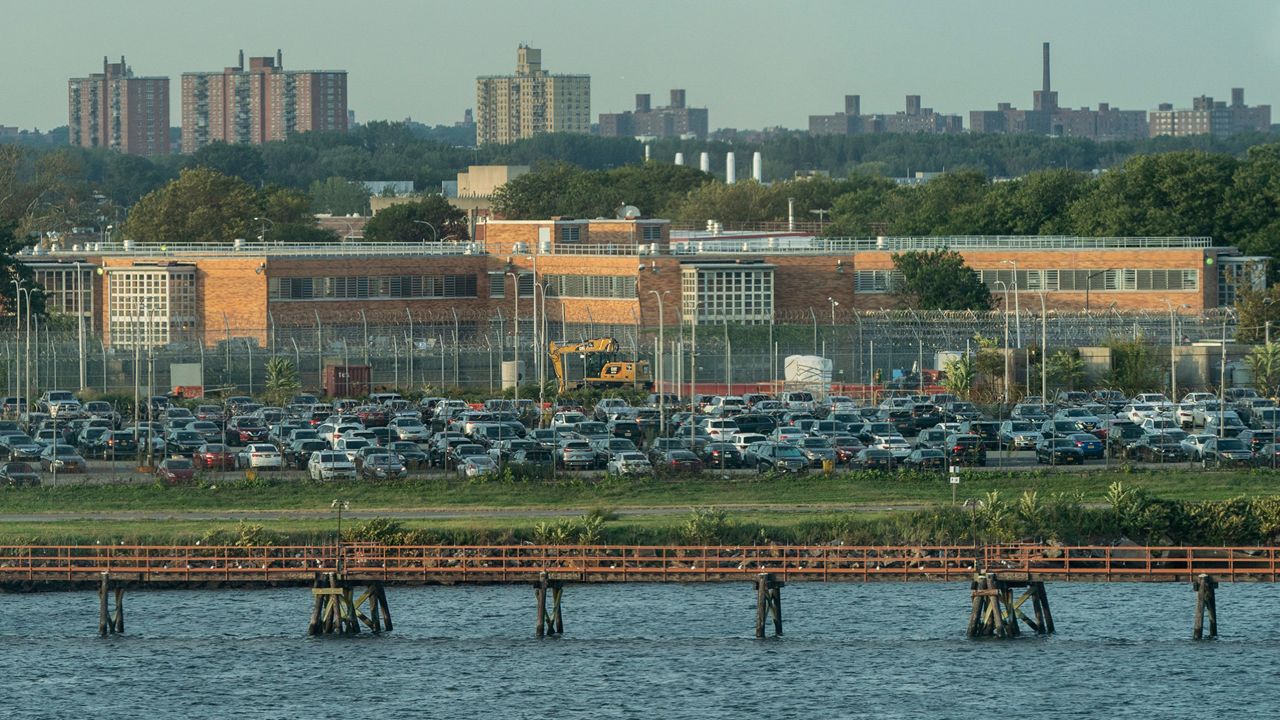Jail reform advocates issued measured praise for Gov. Kathy Hochul and Mayor Bill de Blasio after they announced a new agreement to transfer hundreds of women detainees from Rikers Island to state-run facilities outside the city.
"We are looking at it as a temporary situation — a first step," said Cheryl Wilkins, board director at the Women's Community Justice Association, a group which advocates for the rights of incarcerated women.
Approximately 230 detainees will be transferred to the Bedford Hill Correctional Facility and the Taconic Correctional Facility, both prisons are located 40 miles north of New York City and are operated by the New York State Department of Corrections and Community Supervision.
Anisah Sabur, who was formerly detained on Rikers and was incarcerated at Bedford Hills and now works with a group pushing for the repeal of solitary confinement, said the governor's decision was misguided, placing a focus on continued incarceration rather than alternatives to custody.
"You can’t take people from one hellhole and put them in another. I’ve been locked in Rikers Island. I’ve been locked in Bedford Hills. Both these places cause death and despair," Sabur said. "The solution to the crisis on Rikers Island is decarceration, not more caging.”
Hochul and de Blasio announced the agreement Wednesday, saying the move would help alleviate crowding issues and ongoing problems due to a lack of adequate staffing.
"These actions will further help ease staffing concerns, capacity constraints, and improve safety for several hundred detainees until such time that the City can identify and implement a permanent solution that will bring justice to the situation at Rikers," Hochul said in a statement.
For months now, the de Blasio administration has struggled to respond to a lack of proper staffing due to a persistent pattern of officers who fail to report for duty or call in sick. That, coupled with an increase in the population, has led to a volatile mix that threatens the health and safety of everyone on the island.
Department of Correction officials told NY1 the detainee transfer is expected to free up approximately 400 officers who will be moved to serve in other facilities as part of an effort to reduce triple shifts while officer absenteeism continues to be a challenge within the department.
“This decision connects our female and transgender population to the same or better services and programs than they receive on Rikers Island. It allows us to significantly reduce the number of triple shifts and unstaffed posts at other Rikers facilities, and increase safety and access to services," Department of Correction Commissioner Vincent Schiraldi said in a statement.
According to the department, there are currently 245 women on Rikers and 47 people identify as transgender facility wide. Of the 245 women on the island, 221 of them are pre-trail detainees, 10 of them are serving sentences of a year or less.
Lawyers for the Legal Aid Society railed against the governor's decision on Wednesday, threatening to file suit against the city, saying the move would put their clients at risk and deny them of basic rights to due process.
“This decision will create new harms for these women, disrupting their access to due process, their children, families and support networks," Tina Luongo, attorney-in-charge of the Criminal Defense Practice at The Legal Aid Society, said in a statement. “This move is rushed, ill-conceived and will surely inflict further trauma on our clients. We again demand decarceration, and are considering litigation should Governor Hochul and Mayor de Blasio proceed with these transfers.”
Donna Hylton, a women's rights and prison reform advocate who was held on Rikers Island as a teenager, said the women's transfer would bring some benefit, but she cautioned that in order to alleviate the crisis at Rikers, officials should focus on reforms that do not include incarceration.
"When I was first sent there as an adolescent, now we're talking what 35 years later nothing has changed, the culture of it has become more violent," Hylton said.
For years now, the Women's Community Justice Association has been pushing for the closure of the Rose M. Singer Center, also known as Rosie's — an 800-bed facility on Rikers which houses women and transgender detainees.
"We are caught between a rock and a hard place, I'm happy we're doing something with Rosie's, but you're taking a detainee and putting them in prison," Hylton said. "There is a psychological thing that we must consider as well."



